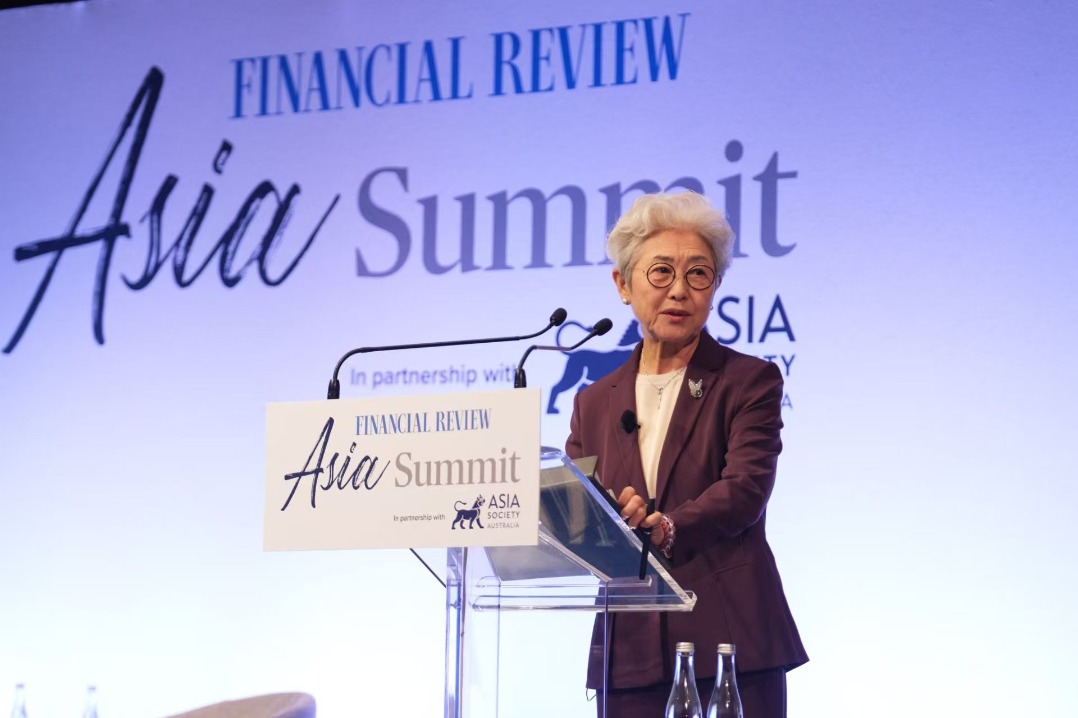Open and constructive communication required, not negative words and deeds: China Daily editorial

In the intricate tapestry of international relations, few bilateral ties are as consequential as those between China and the United States. As the world's two largest economies and major countries, how their relationship fares will have an impact not only on global stability but also on the future of international economic development and world peace.
But as recent diplomatic exchanges have underscored, the relationship is marked by the duality of collaboration and contention. The necessity of managing differences to foster mutual understanding and trust is the essential truth at the heart of these interactions.
The recent dialogues between senior Chinese and US officials, as highlighted in the talks between Chinese Foreign Minister Wang Yi and US Secretary of State Marco Rubio on Wednesday, as well as those between Chinese Defense Minister Dong Jun and US Defense Secretary Pete Hegseth on Tuesday, reveal the pressing need to navigate the turbulent waters of their bilateral relationship.
One of the primary areas of contention remains the Taiwan question. Both Wang and Dong reiterated China's firm stance on the Taiwan question being an internal affair of China, with Wang stressing the US should "exercise caution in its words and actions, especially on issues concerning China's core interests such as Taiwan". Indeed, this serves as a litmus test for the long-term development of bilateral ties between both countries, highlighting a red line that Washington should never cross if it truly wants to get along well with Beijing.
Recalibrating the direction of the giant ship of China-US relations entails the two sides steering clear of the various disturbances and disruptions. To that end, China and the US should enhance communication in such fields as foreign affairs, economy and trade, military and law enforcement to build consensus, clear up misunderstandings and strengthen cooperation.
The dialogue surrounding economic and trade relations, as evidenced by the recent meetings between the two sides in Geneva, London and Stockholm, underscores the potential for cooperation. The outcomes of these meetings illustrate that even with differences, progress can be achieved through negotiation and mutual respect.
However, the path to a stable and productive China-US relationship is fraught with challenges. Recent negative actions and rhetoric of the US side have undermined trust and impeded progress. As Wang pointed out, such behaviors are detrimental to the development of bilateral relations. It is imperative for both nations to prioritize the strategic guidance of the heads-of-state diplomacy and adhere to the consensus reached between the leaders of the two countries.
The military dimension of the China-US relationship also demands careful management. As Dong stressed, it is imperative to uphold an open attitude, maintain communication and engagement, and build a sound, stable China-US military relationship that is based on equality, respect and peaceful coexistence. For this, it is crucial to respect each other's core interests.
In navigating these complex issues, it is essential for both China and the US to remember that, as Wang noted, the two nations once fought side by side during World War II, a testament to the power of cooperation in overcoming global challenges. In today's interconnected world, the stakes are even higher. Climate change, pandemics, and economic instability are challenges that transcend borders and require collaborative solutions.
These latest exchanges between Chinese and US officials serve as a reminder of the importance of communication and dialogue in managing differences. By focusing on dialogue, respecting each other's core interests, and seeking areas of common ground, both nations can work toward a stable future. This requires a commitment to patience and understanding, as well as a willingness to seek consensus or even the shelving of differences in as wide a range of areas as possible.
Ultimately, the development of China-US relations hinges on the ability and willingness of both nations to manage their differences effectively. This does not mean erasing disagreements but rather finding constructive ways to address them, or agreeing to disagree in some fields. By doing so, China and the US would not only enhance their bilateral relationship but also contribute to a more peaceful and prosperous world.
As Dong said, acts of containment or deterrence against China will not succeed, nor will interference in China's affairs. The path forward for China-US relations is therefore clear: prioritize dialogue, respect core interests and manage differences with due care. In doing so, both nations can better harness their collective potential to address global challenges. The world is watching, and the stakes could not be higher.


































